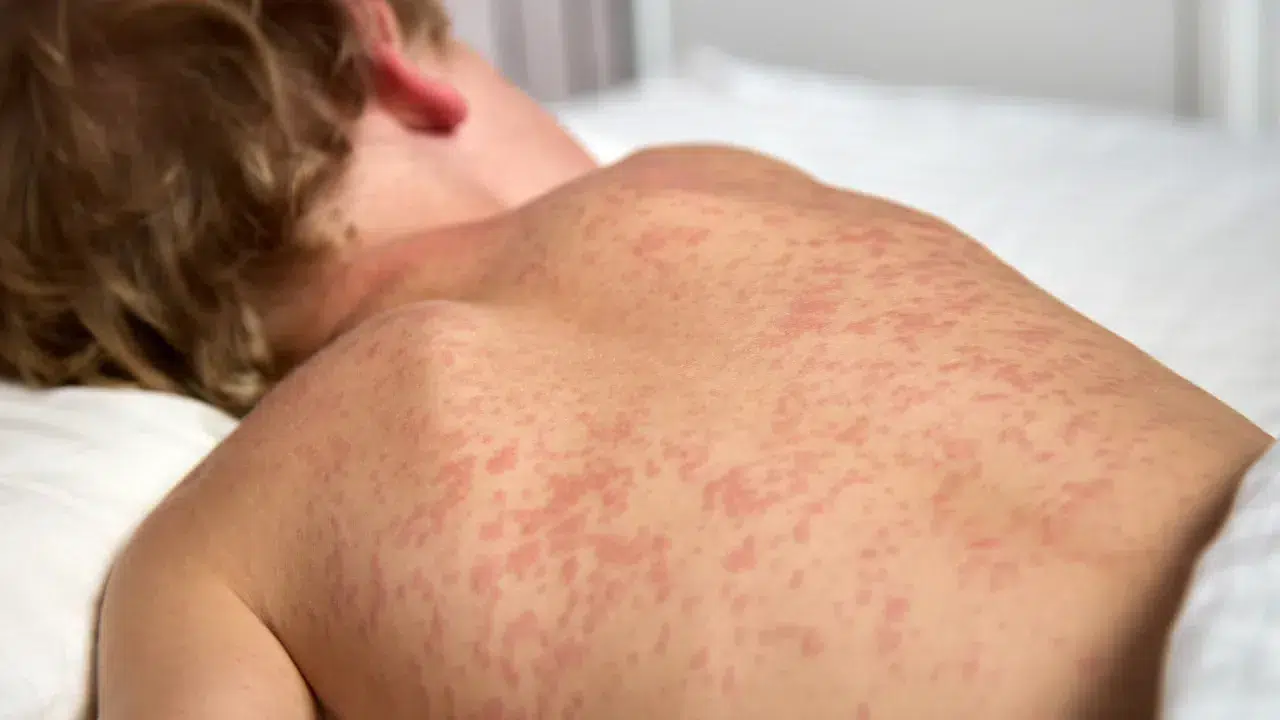
The measles is “one of the most contagious infectious diseases, which can lead to severe illness in unvaccinated individuals,” warns the Directorate-General for Health (DGS) in a social media post that details essential information about the condition.
The disease is described as a “highly contagious viral illness, transmitted through droplets via direct contact or airborne spread when an infected person coughs or sneezes.”
The DGS further notes on Facebook that it is “usually mild, but there are more severe cases that can result in death.”
What are the signs and symptoms, and what actions should be taken?
Four key signs and symptoms require attention: “fever and malaise (e.g., extreme physical and mental fatigue),” “runny nose, cough, and conjunctivitis,” “skin rashes,” and “white spots inside the cheek.”
For action steps, the DGS provides three crucial recommendations:
- “Follow the healthcare professional’s advice;
- Avoid contact with others for four days after the onset of the skin rash to prevent spreading;
- Inform the healthcare professional of individuals you were in contact with during the contagious period, so they can be notified.”
The Directorate-General for Health also emphasizes in the post that “vaccination is the primary protective measure.” Those who should be vaccinated include individuals “born in 1970 or after,” those “who have never had measles,” and those “who have never been vaccinated against measles.”




